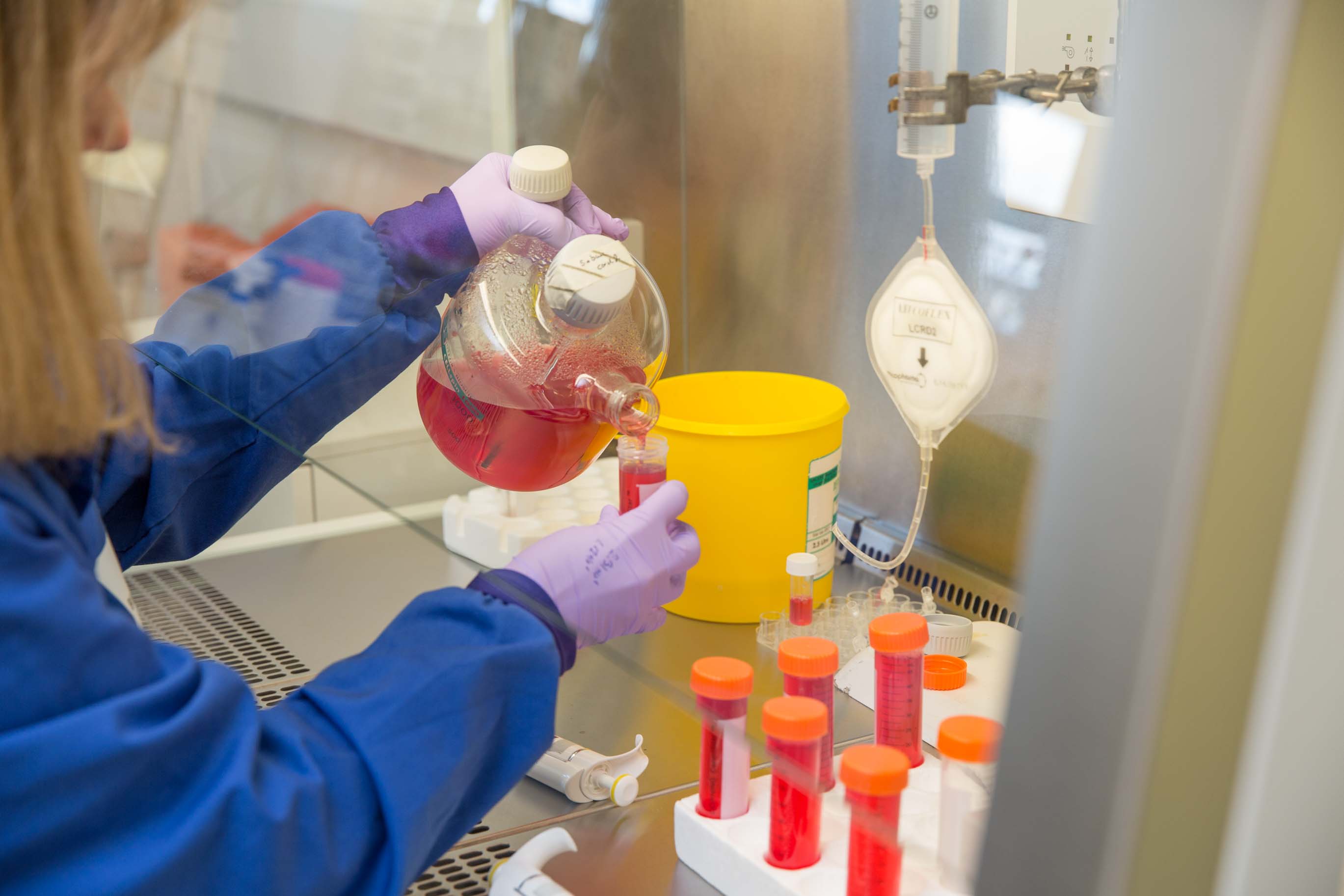Non-clinical use of blood: from labs to Labradors
While most donated blood is used clinically, your donation could also be used to save lives in less direct ways, such as the training of police sniffer dogs.
NHS Blood and Transplant’s core mission is to save and improve lives. While most donated blood is used to treat patients, some donations are unsuitable for clinical use, but they can still be used to help save and improve lives in other ways. One unexpected use is in the training of police sniffer dogs. More details further down!
Non-clinical issue?
Through a service we call “non-clinical issue” we provide blood to approved organisations for a range of approved work into the diagnosis and treatment of patients as well as the development of therapeutic products and services that could benefit patients and patient care in the future.
Why is blood surplus?
Some donations are unsuitable for clinical use because, for example, they are underweight or surplus to demand, or there are quality issues that mean the blood poses a potential risk to patients.
 Who uses the surplus blood?
Who uses the surplus blood?
NHS Blood and Transplant policy and UK regulations cover the handling of blood and human tissue. Access to donated blood for non-clinical use is managed by a dedicated team within NHS Blood and Transplant. Clinical scrutineers ensure that each request is from an organisation with legitimate aims in line with donor consent, NHS Blood and Transplant policy and regulations (including ethical considerations).
(Image: Red blood cells in the lab)
Customers come from sectors including research, laboratory quality assurance schemes, medicine development, toxicology and validation for uses such as:
- Research into the latest advancements in medical treatments for illnesses and conditions such as COVID-19, cancer, arthritis, diabetes and many more
- Education and training
- Validating treatment and diagnostic services
- Production of blood test kits and test reagents
Training police dogs
 One project blood is used for is the training of police sniffer dogs. These are usually Spaniels and Labradors that help in victim recovery and public safety at large events.
One project blood is used for is the training of police sniffer dogs. These are usually Spaniels and Labradors that help in victim recovery and public safety at large events.
Police dog teams from all over the UK get together at national training days, using the opportunity to train in environments that they may not have access to normally and to give training to enhance their current capability.
(Picture: The Non-Clinical Issue team at a training event)
In addition to the generic search training, the National Police Canine Training Exercise team also look at unique scenarios to stretch a handler’s ability with their dog. The dogs can detect the smallest traces of blood and during training events the team look to see if that would distract the dogs or mask any of the target odours the dogs are trained for. This provides reassurance to handlers that should they be deployed to incidents such as the Manchester Arena attack, they know the limitations of their dogs in such circumstances.
Future articles will explain other ways your donations continue to save and improve lives in addition to direct clinical use!
